Aluísio Black: meet the composer and reference of Hip-hop in Goiás
In the scene and in social struggles for more than 30 years, Black unites Hip-hop, education and actions to change the situation of black teenagers and young women in the central-west region of the country.


Credit: Disclosure
By: Gabriel Murga / Lupa do Bem – Favela em Pauta
“The pandemic brought a setback in the whole of society, and we have been fighting. We were fighting before the pandemic, we are fighting during, and in the post-pandemic we will not stop. The fight is eternal. As my teachers always said, ‘a house that lacks bread, everyone fights and no one is right’. We have over 30 years on the road. I’m from the old guard of hip-hop culture from Goiás, which today uses the methodology of urban arts, hip-hop culture as education and social reintegration, and has collaborated a lot here”, says Rapper and MC, Aluísio Black, who has four CDs recorded throughout his career and he is currently president of CENEG-GO and the Youth Reference Center in the state of Goiás.
He continues: “We are a group of people linked to hip-hop, to the black movement that left speech and came into practice. Speech without action is dead. So, we took what we say in the rap lyrics, in the expressions of graffiti, break and DJ and we brought it to practice. And we do citizenship”.
“We bring kids, young people and families here. Through socio-educational activities, we are able to talk about values, principles, education, sociology. The whole process, a chain that hip-hop culture and the street world brings, is of paramount importance to deal with this ‘so-called delinquency’ that is in the communities, that is in the peripheries, and that affects all youth, especially the young black,” he says.
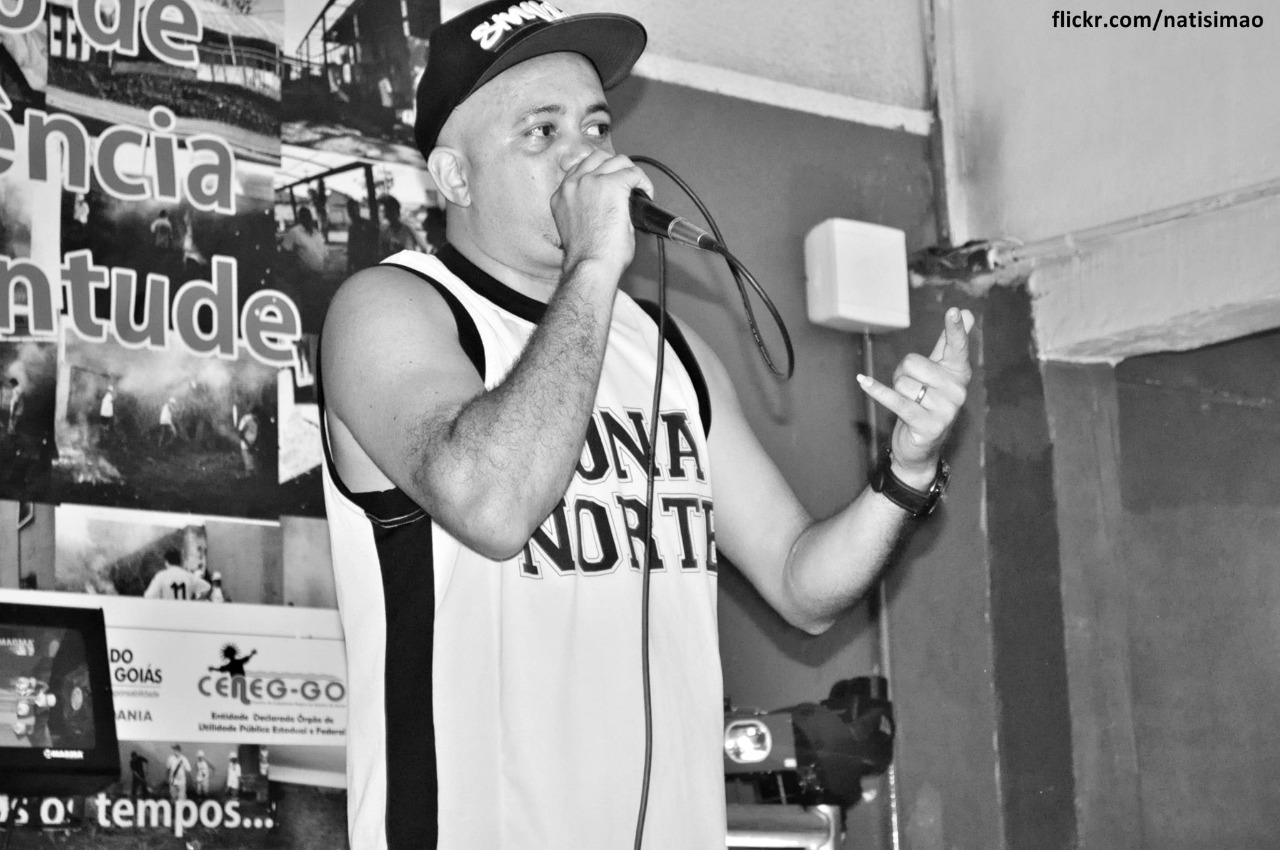
Lupa do Bem: How can hip-hop and rap specifically contribute to the education of young people and teenagers?
We, as a point of Hip-hop culture in the state of Goiás, the only point registered in government agencies for more than 10 years as an exclusive point that has not stopped work.
We have numerous youth groups launched by us. We have our own recording studio, our own radio, our own salon. We have a complete production company that collaborates with the artist, not only with the artistic part that is important, but we collaborate in the area of citizenship, social assistance that we also develop.
Many of our people managed to go to college and there they graduated as managers, as social workers, lawyers, psychologists who brought this feedback to the community and have embraced with us, ‘shouldered’ here, this mission from the point of hip-hop culture and developed, transformed lives, in a simple and simple way that hip-hop culture presents.
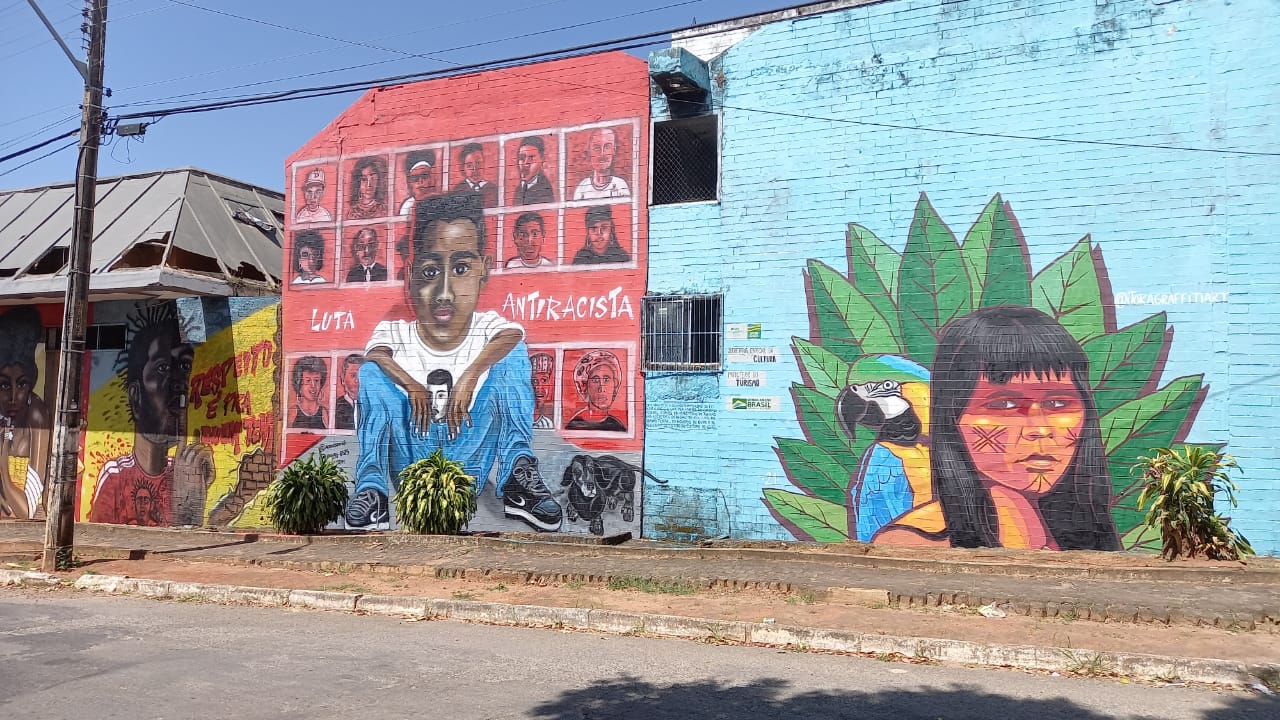

Lupa do Bem: How does the CRJ-GO contribute to actions to prevent violence against women? And the actions oriented against racism?
CRJ-GO, after much struggle – and we continue to struggle – became an active voice in the social control bodies from the periphery to the control of public policies, the formulation of public policies. So, the entity has a vacancy on the Women’s Council, is the holder of the State Food and Nutrition Security Council, the Racial Equality Council, the Human Rights and Combating Prejudice Council, and the Youth Council.
For some time now, we have occupied these chairs and taken the experience to be transformed into public policies the actions that we learned in the ravine, in the community, taking to these instances and to the public power that they also have to gain from this.
Because we believe that the organized civil society will manage the planet’s public policies. Developing countries have already realized this, and Brazil also has no other direction than to accept organized civil society organizations to suggest and collaborate with public policies.
The CRJ, then, has these projects and programs to combat and prevent violence against women.
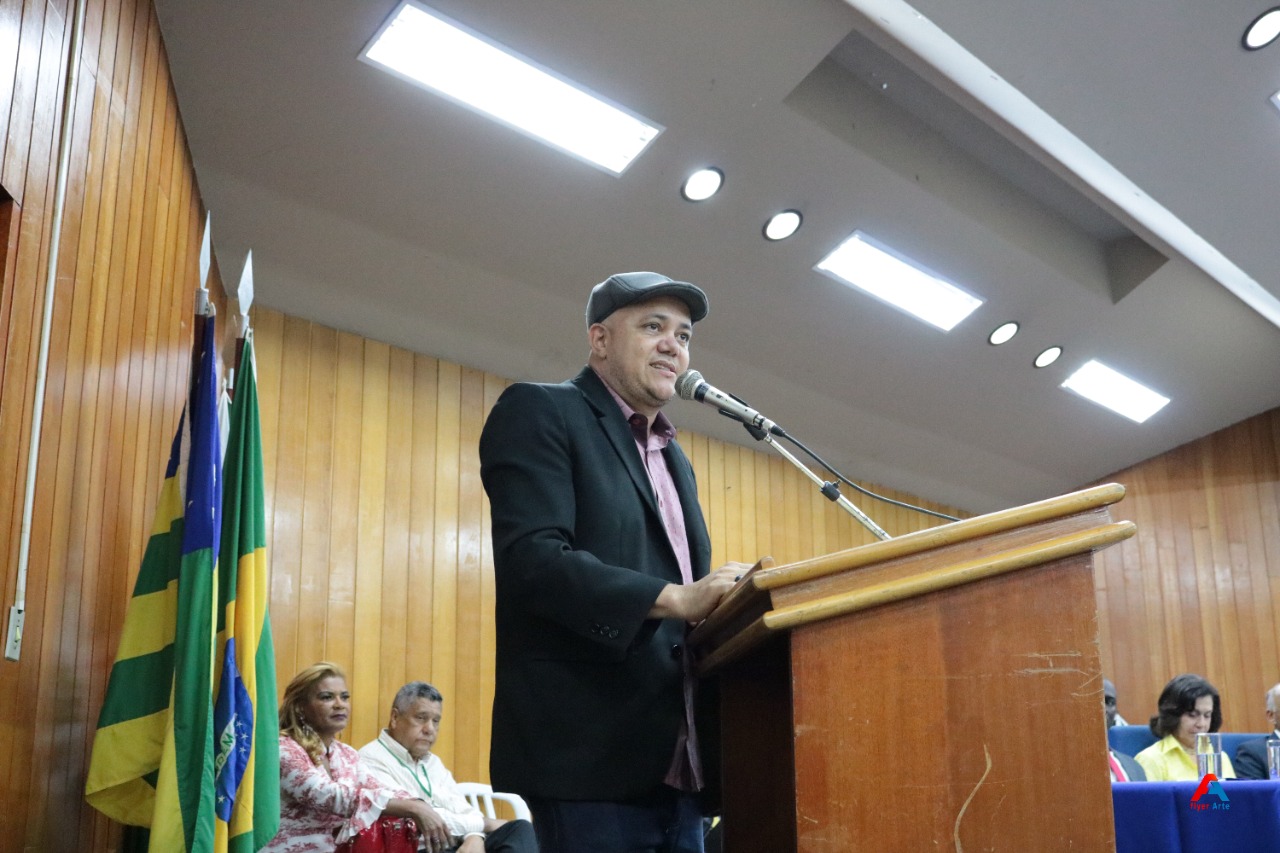

The debates made by us, the seminars, the conversation circles, the shows and the meetings are carried out constantly. We developed activities in our community, at our headquarters, before the pandemic, and we will continue with this line of reasoning and thinking, of always collaborating to alleviate violence against women, violence against youth from the periphery, especially black youth. And, always continue in the fight against racism. Racism is a cancer, and we need to fight it at all times, because it is a situation that destroys dreams. The black communities, CENEG-GO, being the center of black citizenship in the state, is the only institution that houses these communities in the capital of Goiás, being the only point of support that communities have in the capital when they come in search of justice. or when they come in search of health care and other demands.
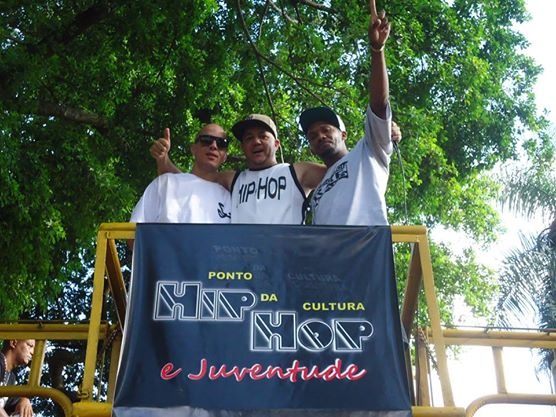

It is in our institution that these communities are welcomed. Quilombola communities, terreiros, indigenous peoples, congada, hip-hop, capoeira. So, it is in our institution that welcomes this community. It’s good to talk about it. We were born for this mission, and we didn’t emerge and then embrace the mission: to work with black communities and traditional people, black and peripheral youth, and that’s the mission.
Statutory speaking and we are here on the front lines. We are an army of people, volunteers and directors, who encourage us to be always active, looking for solutions to the constant problems that exist in society. And, these confrontations there, also on the part of the government, of public policies that are giving the federal government a delay, but we are managing to break through. That’s what I say, the fight always goes on.
Lupa do Bem: What accomplishments would you highlight for people from other peripheries of the country?
From my own experience that all peripheries, all youth organizations or not, but from peripheral and favela civil society, need, at first, to prioritize organization.
We are paper citizens. If you want to have a relationship with society, with the public power, in addition to having transparent management and being able to establish this partnership, in the community itself also with public power, you need to have the principles of legality from an institutional point of view.
We chose this path to be able to have the number of partners we have: from the Judiciary, from the government and civil society, from entrepreneurs and collaborators.
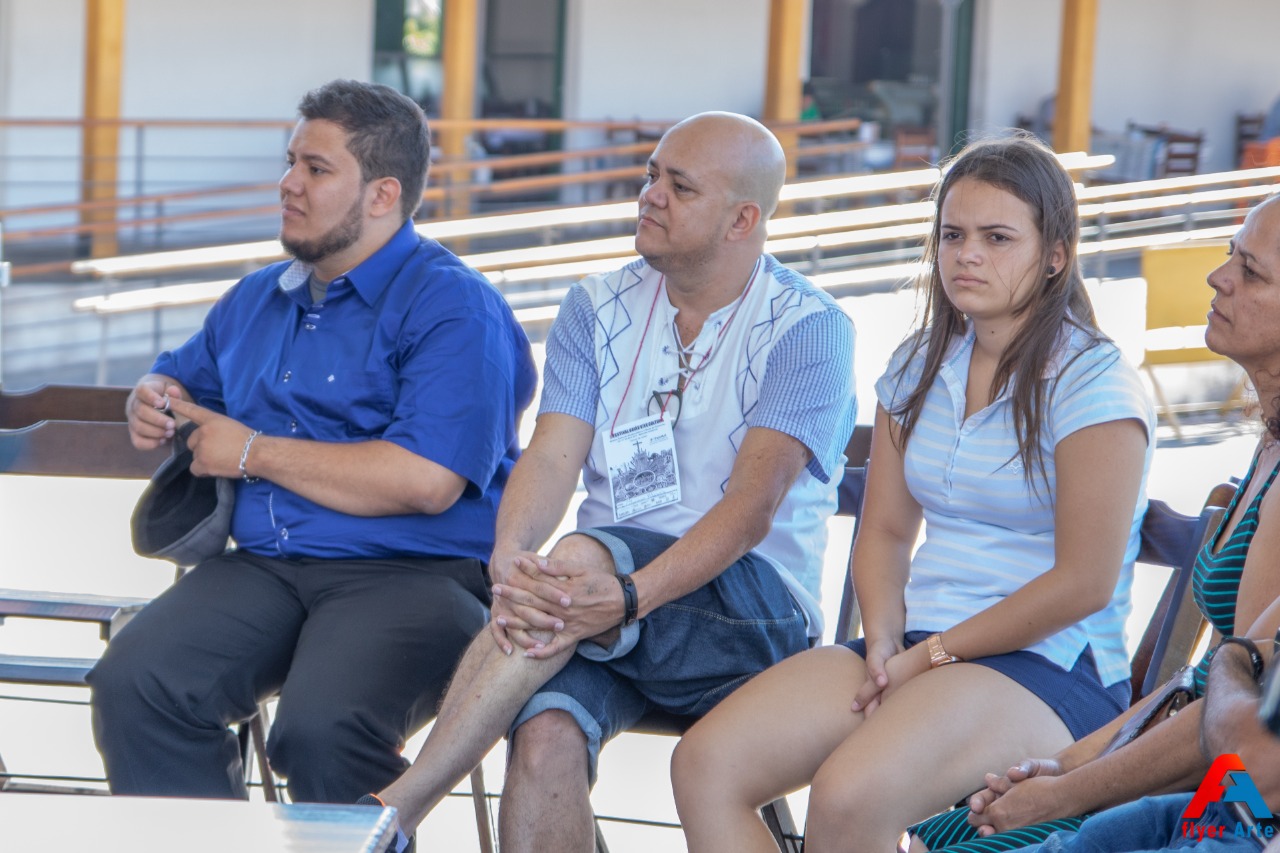

Lupa do Bem: What is your origin and how did you get started?
This job took place 30 years ago, and as I’ve already told you, I’m old school. So, everything that I put in my lyrics and that I heard from my idols, like Thaíde and DJ Hum, and later Racionais Mc, I attribute to my formation and to the local groups here at the same time, Dogs of the Street and Selvagens electrorock, because in the same year of 1980, these groups were already in the peripheries of Brazil.
So, this road is long, we brought into practice what we express in rap lyrics, what we express in the expressions of Art, hip-hop and Afro-Brazilian culture. And these expressions potentiated when we brought them into practice. The origins were in the formations through music and art, and then it was expanded to social assistance, and it is expanding to the housing, professional, and human rights areas.
Then, you will understand this whole chain that can add a lot to our people in the communities. And happy, because we have the knowledge, we are aware that hip-hop has done and still has a lot to do.
I do attribute it to hip-hop culture for getting to where we are and it’s still just the beginning. Now we are one of the institutions in Goiás, founder of the Goiás Breaking Federation, because we have become an Olympic sport.
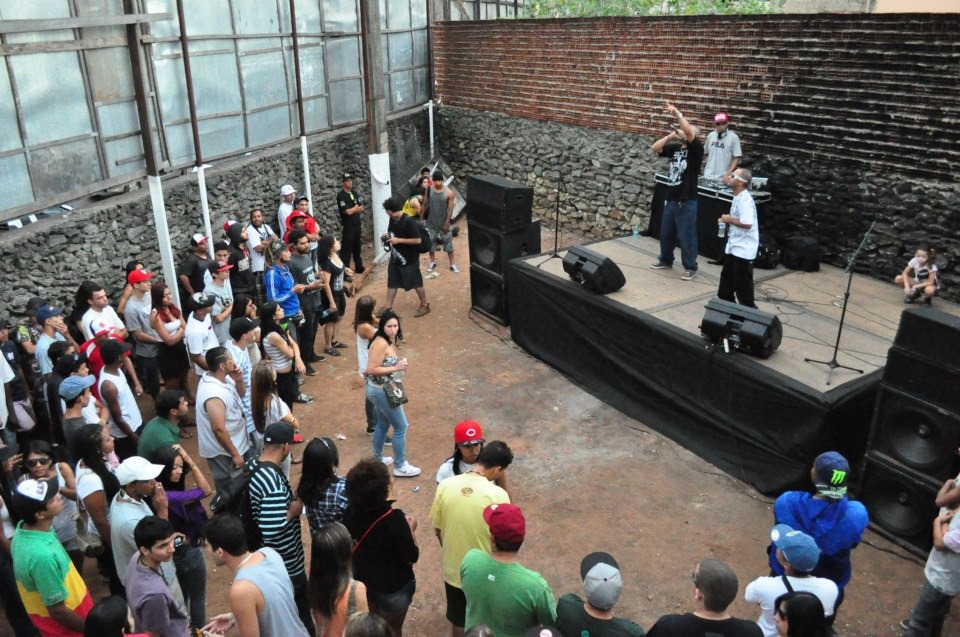

As I said, we are involved in this theme, we are now founding the Federation of Break of the State of Goiás, intending to collaborate a lot with the peripheral youth, and taking great care so that the hip-hop culture is not, or does not become a fad, or is restricted to a market product, but consolidates itself every day as a sociocultural culture in defense of ethical moral principles and social transformation.


